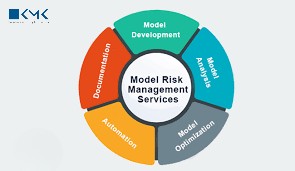In today’s fast-moving business world, accuracy in financial reporting is more critical than ever. For companies using Xero, one of the most trusted cloud accounting platforms, ensuring that accounts are reconciled correctly and on time is essential.
But as your business grows, manual reconciliation becomes time-consuming. That’s why many small and mid-sized businesses now choose to outsource accounts reconciliation on Xero — gaining expert support, speed, and cost savings.
Still, one question remains:
“Is outsourcing Xero reconciliation truly secure and compliant?”
Let’s unpack that with a clear, human explanation.
What Does It Mean to Outsource Accounts Reconciliation on Xero?
When you outsource accounts reconciliation on Xero, you delegate the task of matching transactions between your bank accounts and your Xero ledger to an external accounting team or offshore bookkeeping provider.
This team works on your Xero cloud account under secure, limited access — helping you ensure your books are accurate, compliant, and up-to-date without spending hours reconciling manually.
Typical tasks an outsourced Xero reconciliation team handles include:
- Importing and matching bank transactions
- Identifying duplicates or missing entries
- Managing multi-currency reconciliations
- Correcting errors and journal entries
- Generating reconciliation reports for review
It’s the same process your in-house accountant does — but faster, more efficient, and fully compliant with accounting standards.
Is Outsourcing Xero Reconciliation Secure?
Security is the top concern for any business sharing financial data. Reputable outsourcing providers use enterprise-level data protection systems to keep your records safe.
Here’s what makes outsourcing Xero reconciliation secure:
Cloud-based access only: Xero operates on the cloud, meaning your outsourced team accesses data through encrypted, permission-based login credentials.
Two-factor authentication (2FA): Xero’s built-in 2FA feature ensures only authorized users can access your account.
No file transfers via email: All data stays within Xero’s secure environment—no spreadsheets or manual uploads that risk exposure.
NDA and confidentiality agreements: Professional outsourcing partners ensure all staff sign strict NDAs and follow internal confidentiality protocols.
ISO-certified processes: The best outsourcing firms comply with ISO 27001 and SOC 2 standards, ensuring robust data protection.
In short, when done through a certified Xero outsourcing partner, your financial data is safer than it would be on a local hard drive.
What About Compliance? Does It Meet Accounting Standards?
Absolutely. When you outsource accounts reconciliation on Xero, compliance is built into every step of the process.
Here’s how:
- Adherence to GAAP and IFRS: Most professional outsourcing teams follow Generally Accepted Accounting Principles (GAAP) or International Financial Reporting Standards (IFRS).
- Accurate audit trail: Xero automatically tracks every action taken, creating a full audit trail for compliance reviews.
- Timely reconciliations: Regular reconciliations keep your books compliant with tax authorities and financial reporting deadlines.
- Data retention policies: Outsourcing partners align with IRS and ATO (for U.S. and Australian clients) data retention standards.
If you choose a firm experienced with U.S. compliance and Xero workflows, you can maintain complete transparency and accountability.
What Should You Look for in a Xero Reconciliation Outsourcing Partner?
Choosing the right outsourcing provider makes all the difference. Before you outsource, ask these essential questions:
- Are your accountants Xero-certified and trained in international compliance?
•Do you follow ISO 27001 or SOC 2 data security standards?
• Is the work done on secure, monitored systems (no personal laptops)?
• Do you provide a Service Level Agreement (SLA) outlining accuracy and timelines?
• How do you manage client communication and reporting frequency?
If the answers check out, you’ve found a partner who values data security and compliance as much as you do.
Is Outsourcing Xero Reconciliation Right for Your Business?
If your team spends hours reconciling transactions, dealing with mismatched entries, or chasing missing receipts — outsourcing is the smart move.
It’s especially valuable for:
- Small businesses wanting to scale without hiring full-time staff
- CPA and accounting firms needing offshore support
- Startups managing multiple bank accounts or revenue streams
By outsourcing, you focus on strategy and growth, while experts handle the routine yet critical reconciliation process — securely, accurately, and in full compliance.
How Outsourcing Xero Reconciliation Improves Accuracy and Efficiency
When you outsource accounts reconciliation on Xero, you’re not just reducing workload — you’re actually improving the accuracy and speed of financial management. Manual reconciliation is prone to errors, especially when dealing with multiple bank feeds, currencies, or high transaction volumes. Outsourced teams trained in Xero reconciliation best practices use automation, rules, and AI-powered matching to catch discrepancies faster than human eyes can.
Xero’s automation features — like bank feed matching, rule creation, and statement imports — work best when managed by experts who understand how to configure them properly. An outsourced professional can create customized reconciliation rules that fit your business model, ensuring consistent results and fewer exceptions.
Additionally, by outsourcing, businesses gain access to 24/7 processing, allowing overnight reconciliation. For example, a U.S. business outsourcing to a team in India or the Philippines can wake up every morning to fully updated ledgers — ready for decision-making. This “follow-the-sun” model improves both efficiency and reporting turnaround time.
Who Benefits Most from Outsourcing Accounts Reconciliation on Xero?
Outsourcing isn’t just for large corporations — it’s increasingly being used by small businesses, CPA firms, and startups looking to manage growth efficiently.
Here’s how different types of organizations benefit:
-
Small businesses: Free up owners from day-to-day accounting and reduce dependency on local hires.
-
CPA firms: Scale their capacity during tax season or client surges without adding permanent staff.
-
E-commerce stores: Reconcile multiple sales channels (Shopify, Amazon, PayPal) within Xero accurately.
-
Startups: Maintain investor-ready books without the cost of a full finance team.
This approach helps firms maintain a professional back office while staying agile and cost-efficient.
The Hidden ROI of Outsourcing Xero Reconciliation
Many businesses initially outsource to save money, but the real return on investment often comes from better decisions and fewer financial surprises. Timely reconciliations mean your balance sheets, cash flow statements, and P&L reports always reflect the real situation — preventing overdrafts, missed payments, or incorrect tax filings.
A well-managed outsourced team can also help spot financial trends, recurring errors, and potential fraud patterns early. For instance, duplicate transactions, missing receipts, or unrecognized vendor payments are caught during the reconciliation process.
Over time, these small accuracy gains translate into significant cost savings and stronger compliance control.
Best Practices to Keep Xero Reconciliation Outsourcing Secure
Even though Xero’s cloud platform is secure by design, you should still follow these best practices when outsourcing:
1️⃣ Grant role-based access only — Give limited permissions to outsourced accountants.
2️⃣ Use Xero’s activity log — Regularly review who accessed what and when.
3️⃣ Keep reconciliation frequency high — Weekly or daily reconciliation prevents errors from compounding.
4️⃣ Work with certified Xero partners — Always verify credentials and compliance certifications.
5️⃣ Maintain communication transparency — Schedule periodic reviews to stay aligned on goals and progress.
These habits ensure both parties maintain accountability and protect financial data integrity.
The Future of Outsourcing in Xero Accounting
As more businesses adopt cloud-based accounting ecosystems, outsourcing will continue to evolve. AI and automation are now helping outsourced teams deliver even greater accuracy and predictive insights. For example, automated reconciliation suggestions in Xero are becoming smarter, allowing accountants to focus more on analysis and advisory rather than manual matching.
This shift means outsourcing isn’t just about cost-saving — it’s about building a smarter, scalable, and technology-driven finance function that adapts to your business’s future needs.
Final Thoughts: Security and Compliance Go Hand-in-Hand
So, is outsourcing accounts reconciliation on Xero secure and compliant?
Yes — when you work with the right partner.
Modern outsourcing providers combine Xero’s built-in encryption and audit trails with global data protection standards. That means your books stay accurate, your data stays private, and your business stays compliant — all while reducing costs and improving efficiency.
If your goal is to simplify reconciliation, strengthen compliance, and scale profitably — outsourcing your Xero reconciliation might be the smartest step forward. Outsourcing accounts reconciliation on Xero has moved beyond being a cost-reduction tactic — it’s now a strategic growth tool. With the right partner, you get enterprise-grade security, 100% compliance, and a continuously reconciled set of books — giving you peace of mind and more time to focus on what truly matters: growing your business.

